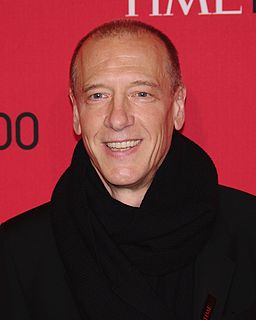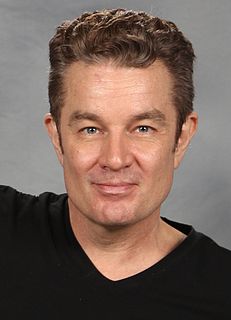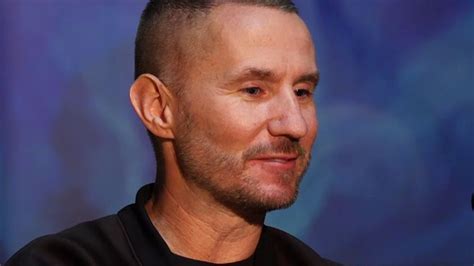A Quote by Christian Marclay
These things I sample, or clip, are things that we share - music, films, sounds. It triggers a layer of participation from the audience as they recognize the material and remember it.
Related Quotes
You can't remove that layer of pain by just saying, "Okay, I'm not going to wallow in it." The only way to remove that layer of pain is to face what it says and to recognize it as the look in the mirror that it is, reflecting the things you did that you wish you hadn't done and the things you didn't do that you wish you had done.
When I play that music live nowadays, there's a lot of things I feel I'd like to do - even things I don't think the audience is aware of, like layering subs underneath the kicks, and layering crisp hats underneath the muddy, trashy hats of the '90s. If I tried to play the music as it was next to my contemporary music, it just sounds like you're closing up half of the sonic spectrum.
A lot of people ask me where music is going today. I think it's going in short phrases. If you listen, anybody with an ear can hear that. Music is always changing. It changes because of the times and the technology that's available, the material that things are made of, like plastic cars instead of steel. So when you hear an accident today it sounds different, not all the metal colliding like it was in the forties and fifties. Musicians pick up sounds and incorporate that into their playing, so the music that they make will be different.
I like the saying: "The world is as you are." And I think films are as you are. That's why, although the frames of a film are always the same - the same number, in the same sequence, with the same sounds - every screening is different. The difference is sometimes subtle but it's there. It depends on the audience. There is a circle that goes from the audience to the film and back. Each person is looking and thinking and feeling and coming up with his or her own sense of things. And it's probably different from what I fell in love with.
We're all about exploring new sounds, so we don't have any limits whatsoever about how we go about finding them. We do tend to sample human vocals or sample sounds, which allows you to create your own sound. That's not our only way obviously, but that's a way you can use a sound no one's used before; it's not a sound in the synth. There's a lot of that going on in our songs in general.








































